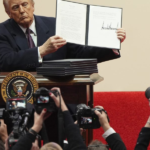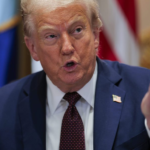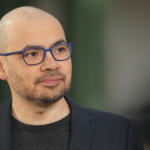Despite the Vatican’s lack of regulatory power, Pope Leo XIV is increasingly advocating for ethical AI oversight on the part of governments and companies, just a month into his papacy.
“AI, especially Generative AI, has opened new horizons on many different levels, including enhancing research in healthcare and scientific discovery, but also raises troubling questions on its possible repercussions on humanity’s openness to truth and beauty, on our distinctive ability to grasp and process reality,” he said.
Although the Vatican doesn’t have explicit regulatory power, Sacred Heart University Catholic studies professor Daniel Rober said the Holy See often lobbies foreign governments to advance its agenda.
“Acknowledging and respecting what is uniquely characteristic of the human person is essential to the discussion of any adequate ethical framework for the governance of AI,” Leo said in the message.
Leo has made ethical AI a priority of his papacy, mentioning it just two days after he became pope in his inaugural address to the College of Cardinals. He is building on the legacy of Pope Francis, who during his time as pontiff established the conference on AI held at the Vatican this week.
Leo is also following in the footsteps of his namesake Leo XIII, who advocated for better working conditions during a period of rapid industrialization in the late 19th century and early 20th century.
“He took the name because he wants to be somebody who is commenting on the way in which technology, both AI and other things, are changing society, and wanting the church to be a voice advocating for humanity and for the human good in those circumstances,” Rober told Fortune.
While Leo advocates for ethical AI—and could be preparing to write a future “encyclical” (or formal letter to all Catholic bishops) on the subject, according to Rober—the debate on how much to regulate AI rages on worldwide.









